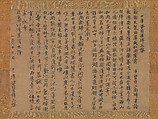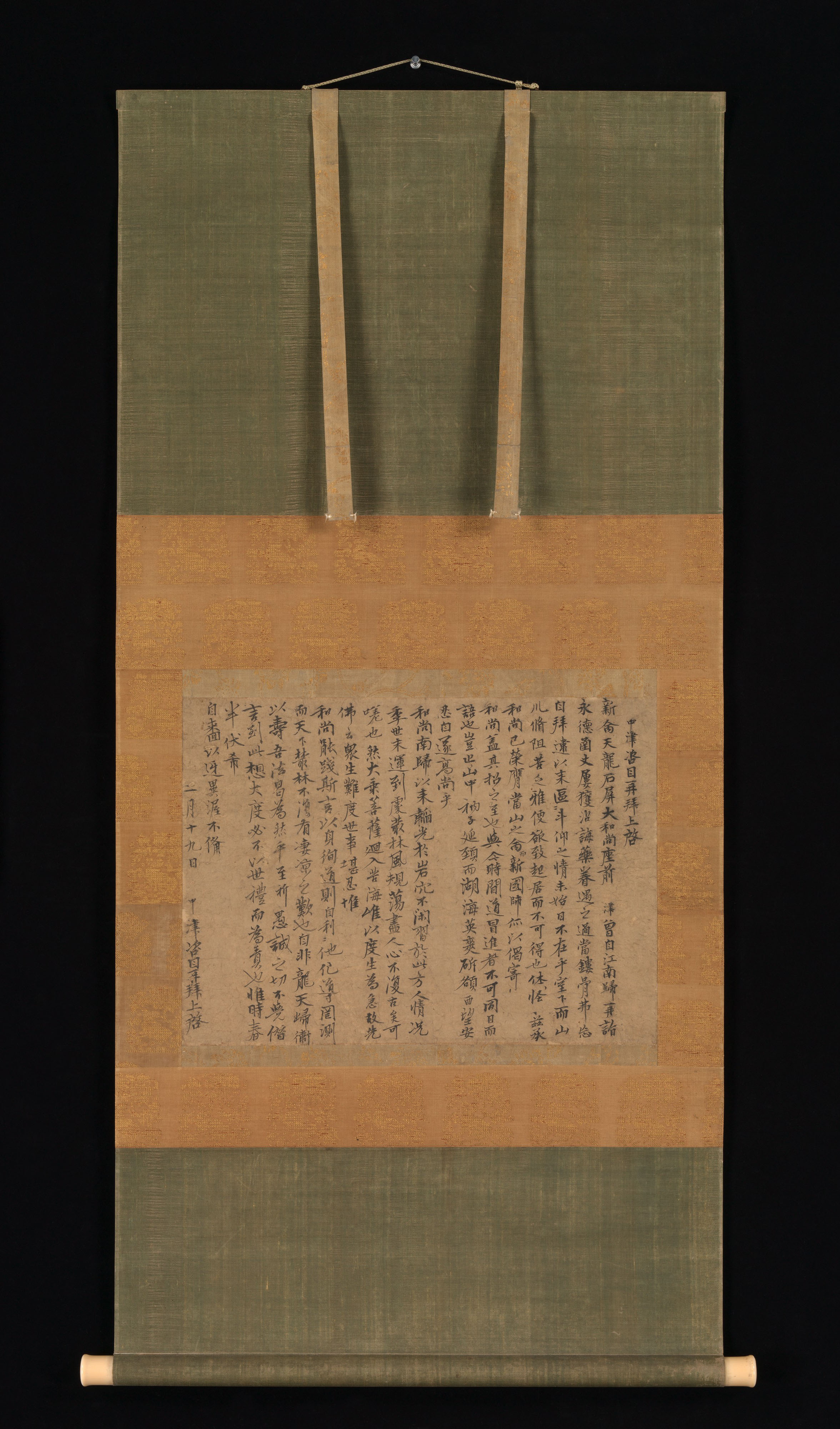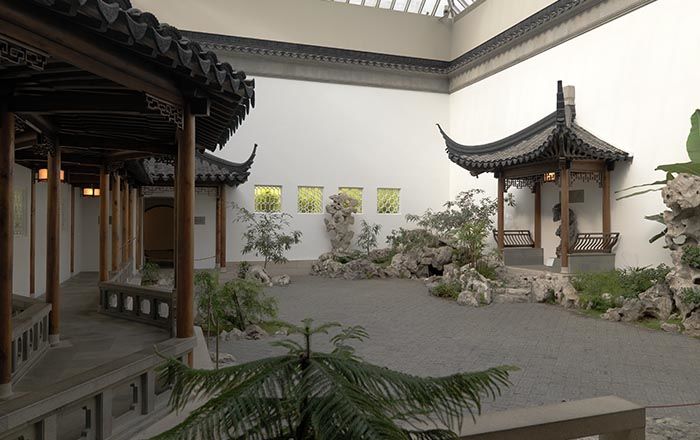Letter to Monk Sekibyō
Zekkai Chūshin Japanese
Not on view
This letter was written by Zekkai Chūshin, a Rinzai Zen monk who served as abbot to both Tōjiji and Shōkokuji temples. It is written in twenty lines, dated the second month, nineteenth day (of an unspecified year), and is addressed to “the great monk Sekibyō.” Starting with a flowery greeting “Chūshin greets you again with respect and begs to write,” it congratulates the addressee upon his appointment to the abbacy of Tenryūji, Kyoto, one of the most prestigious Zen temples in Japan. The letter is written with carefully conducted brushstrokes and ends with the signature and a note, “Chūshin, sending greetings to you with respect.”
Zekkai Chūshin, one of the two greatest scholar-poet monks in the history of Zen Buddhism in Japan, is said to have been a disciple of Musō Soseki (1275–1351), with whom he is believed to have begun his Zen apprenticeship as a youth in 1349. Still using his youthful name Yōkan, he traveled to China from 1368 to 1376. In 1372 Yōkan received the name Zekkai from a prominent Chinese Zen monk, and in 1376 he was granted an audience with the Ming emperor. Upon his return home, Zekkai held numerous important posts, a temple that was the top administrative and scholarly post at Shōkokuji in Kyoto, which was under the direct patronage of the ruling shogun.
This image cannot be enlarged, viewed at full screen, or downloaded.
This artwork is meant to be viewed from right to left. Scroll left to view more.



